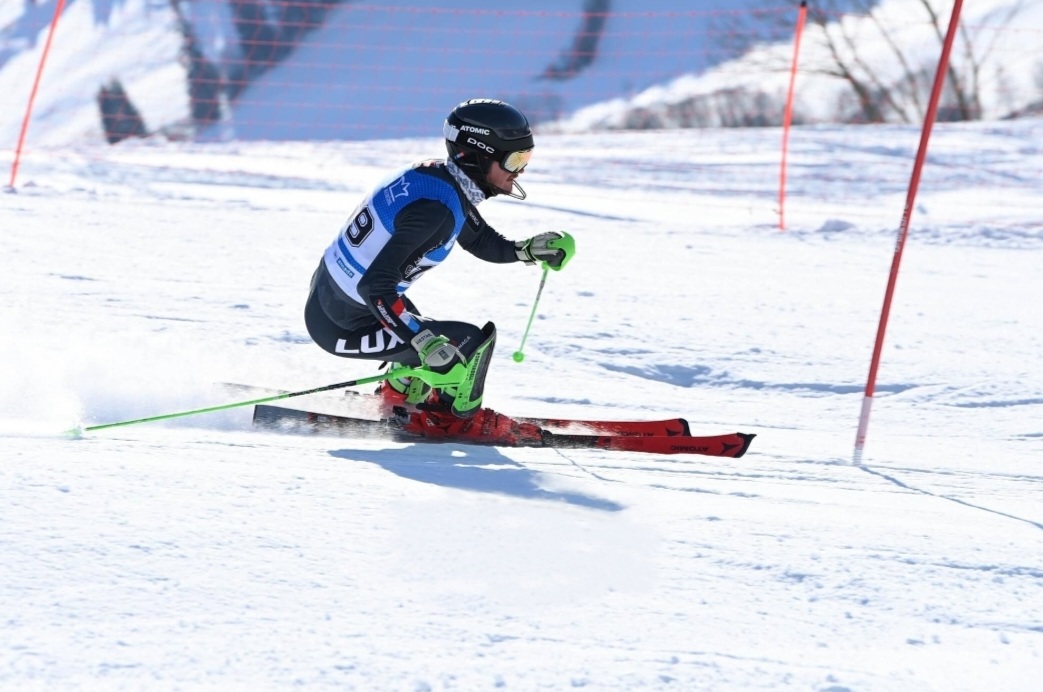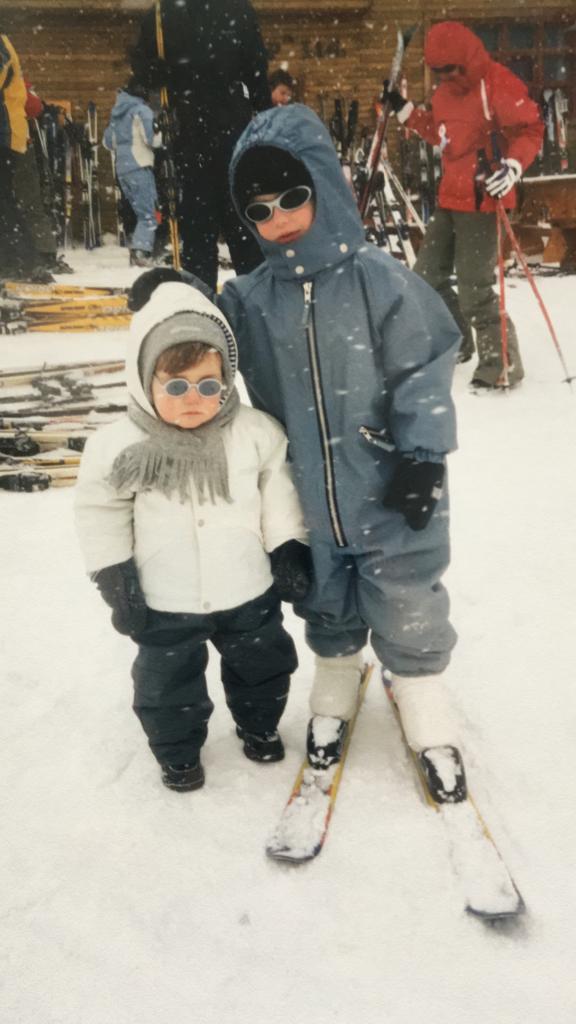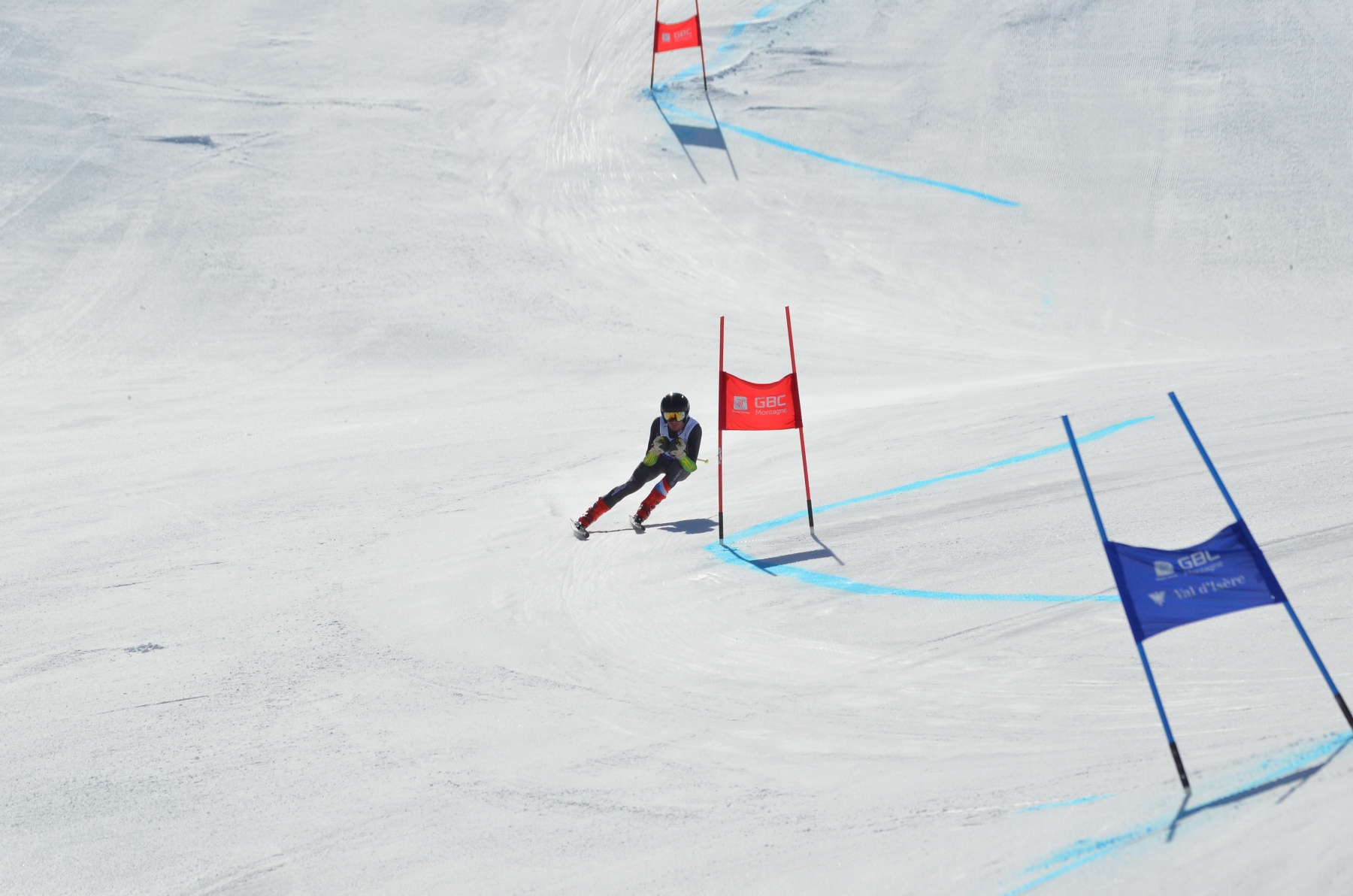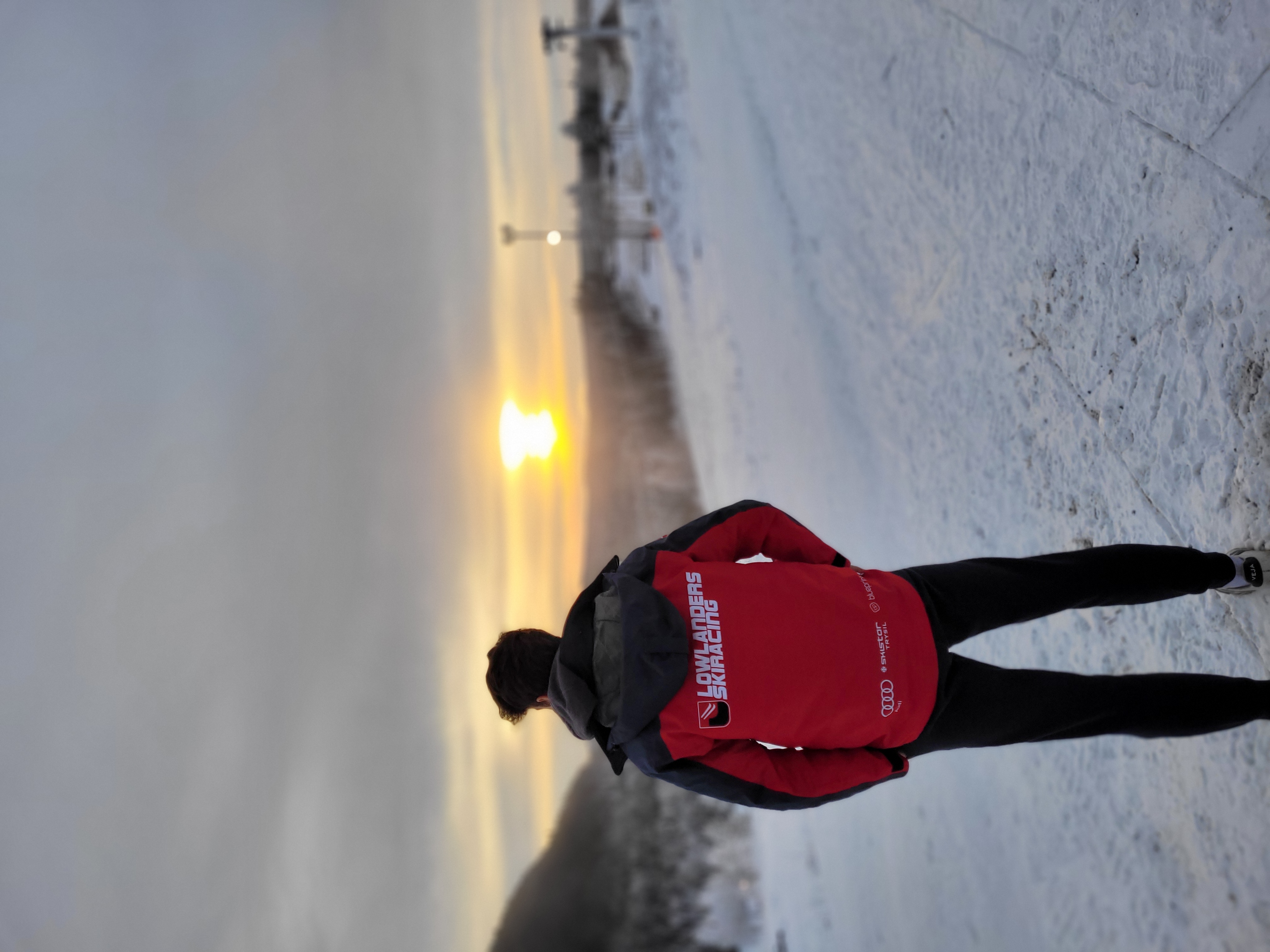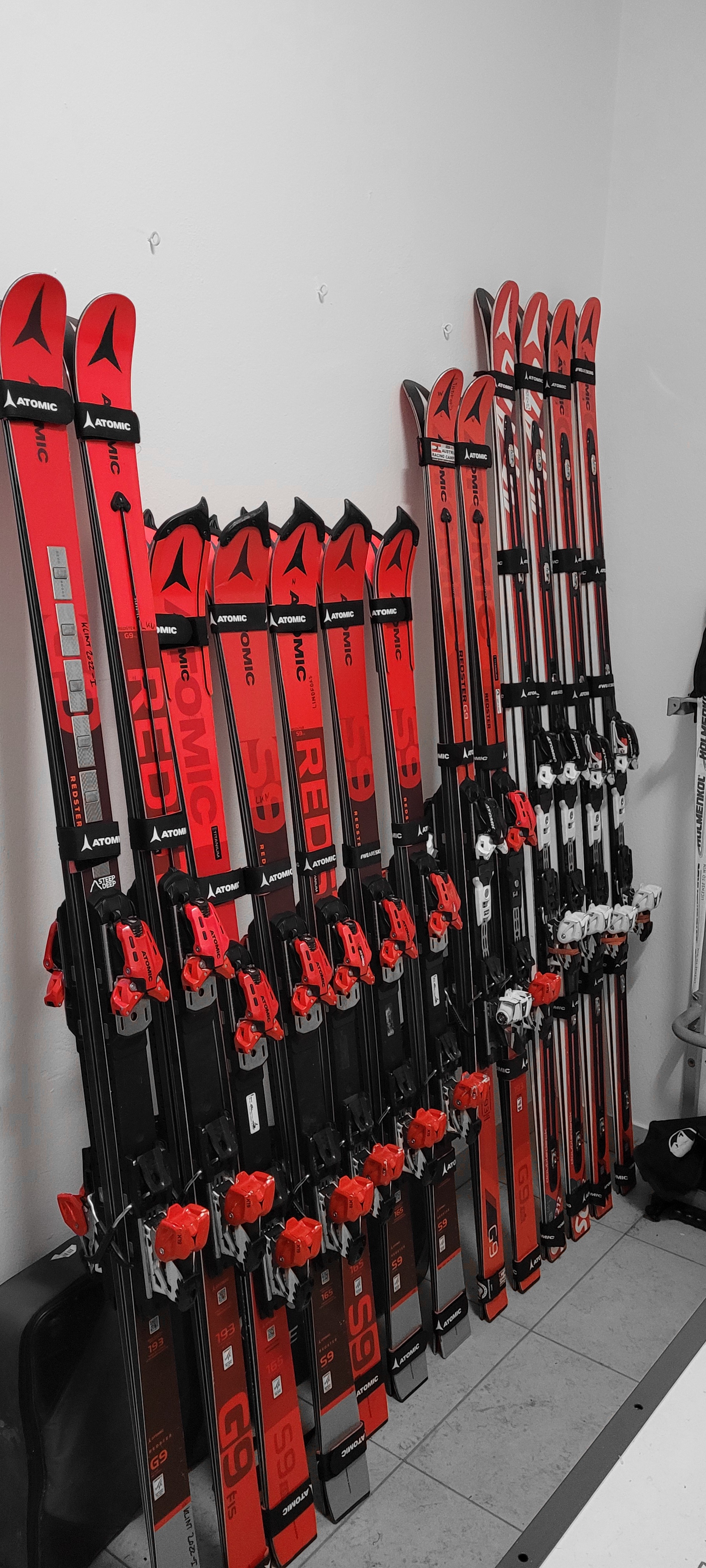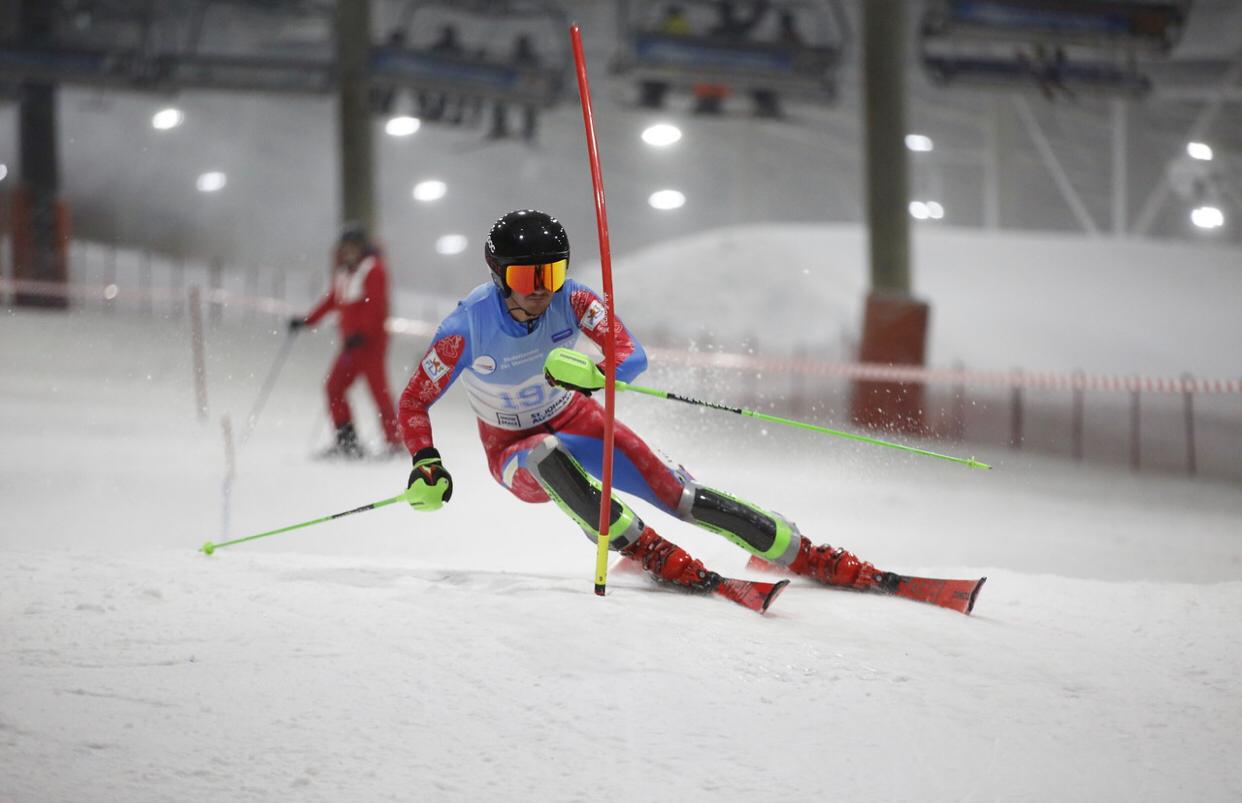In the latest in our Scholar Spotlight series, we interviewed international student and Alpine Ski Racer William Lindfors about his sport, skiing, and how the University of Kent Sports Scholarship Scheme helped keep him on the slopes while studying.
What were your sporting ambitions whilst growing up and before arrival at University?
I’ve always been interested in sports growing up. Skiing became the one that I enjoyed the most and therefore I committed to the sport of alpine ski racing when I was 12 years old.
What are you studying at Kent and what are your career ambitions after graduation?
I am on my final year in a bachelor’s degree of International Business. I have work experience in the financial sector from previous summer internships. After graduation the plan is to find a job that allows me to keep competing in the sport for the foreseeable future.
You are an international student from Europe, what attracted you both to the UK and Kent in particular to study?
Studying in the UK attracted me as the quality of teaching is high and the opportunities when graduating are multiple. The University of Kent is represented as the UK’s European University, which was appealing to me as I’ve always been used to an international environment, growing up in Luxembourg.
You were born in Helsingborg in Sweden and then moved to Luxembourg whilst you were young, can you comment on the sporting scenes growing up in both countries and what the key national and school sports were in each?
I moved from my hometown of Helsingborg, Sweden when I was 5 years old. Despite being located in the south of Sweden, I had begun skiing when I was 4 years old. In Sweden skiing is a bit of a national sport with many youngsters involved with ski racing as we have many successful professionals to look up to.
Can you comment on your earliest memories of first learning to ski? How did you then develop in your sport at a young age?
When my family moved to Luxembourg, we spent more time in the Alps during winter holidays as it is only around a 7-hour drive. As my parents enjoyed skiing too, my brothers and I (pictured below) began to ski more and more. When I was 12 years old we began to understand that we had the skills to reach the top in Europe.
William (on Ski’s) and his brother Nikolaj
The UK is not renowned for great skiers mostly due to the lack of snow but how often were you able to ski and practice when you were young and how did you progress into competitive skiing?
We usually had around 40 days on snow having fun and also training with the French ski school programme mostly in Val Thorens. Then we began to train with a dedicated Swedish racing team known as Alpine Ski Pool, run by the renowned Swedish coach Jonas Lind.
The diversity of skiing formats and competitions can be a little confusing to outsiders especially in the UK where snow sports are very niche – can you provide a short summary of the events and formats you compete in?
Alpine Ski Racing is divided into four disciplines; Slalom, Giant Slalom, Super G and Downhill. With the two first mentioned being referred to as tech and the latter as speed events. In the tech events athletes compete on the total time of two runs whilst speed events only feature one run. To succeed in tech events technical skill and agility is favoured whilst speed events require more courage and strength.
You currently represent the Lowlanders Ski Racing Team, can you tell us about how the team was developed and what it represents?
I’m on the Luxembourgish National Team therefore I represent Luxembourg, however I train and spend the season with the Lowlanders. The Team is a cooperation between European countries that do not have mountains locally. The initiative was set up as a cost saving option as resources would be pooled together. The participating nations are: Luxembourg, the Netherlands, Denmark, Belgium, Iceland and Ireland. In total we are around 25 athletes as of now split into smaller groups to allow for higher quality training.
Can you explain the levels of competition you currently compete in across Europe and how these competitions lead to the big events such as the Winter Olympics?
I compete in events across Europe known as FIS (International Ski Federation) competitions. In these you achieve FIS Points which are on a scale from 0 to 999. The aim is to have as low points as possible, I currently have 115 in Slalom, 108 in Giant Slalom, 136 in Super G and 122 in Downhill.
Can you provide a summary of a typical ‘day in the life’ of a typical competitive skier, perhaps a typical day of training and a typical day competing?
Both training and racing days are long days with early wake ups. Depending on how close we live to the training/ race slope we might sleep in a bit but alarm goes off between 6am and 8am. After breakfast and travelling to the hill we have a warmup session before getting our gear on. This is where days differ if it’s a training day or race day.
Training Day: After warming up we head up with the lifts where our coaches have set a training course. We inspect the course and then take one or two warm up runs of freeskiing (not in the course). Then training starts off, we aim for around 6 quality runs in the course with coaches filming the session and giving feedback at the bottom of the run.
Race Day: After warming up on a race day we also head up to inspect the course, however in races there is a time limit on when you can inspect so it is important to not miss that window. Then we go through the course in our heads remembering key sections and discuss line choice with our coaches. When the race eventually starts, we ideally have three coaches which means that we get aid at the start with equipment, the run is filmed, and we have direct feedback in the finish.
Following either racing or training, we get back to the hotel or apartments and some try to get some rest whilst others have school. Then we usually have a mobility or strength session depending on the next day’s activity, as we don’t want to burn out if we have multiple races in the coming days. Following this, we have one of the most important aspects of ski racing which is ski preparation. A ton of time is spent on preparing the skis everyday as they require waxing of base and tuning of the edges. This improves acceleration of the ski and grip in the turns. As we mostly ski on icy conditions the material sees a lot of wear.
You have grown up and travelled across Europe to compete, do you have a favourite place to Ski and a favourite place to be when not on the slopes?
During the season my favourite place to train is Hinterreit in Austria, the hill has two lifts and is set up for race teams, no tourists are allowed to ski there whilst there is training set up. Many world cup skiers also often train there. My favourite place to race is Pecol di Zoldo, Italy where I’ve managed to score points in the last two seasons. In the pre-season my favourite place is the Indoor hall in Peer, Belgium where we have our base as we combine the strength and conditioning training with a couple of indoor ski runs per day.
Snow sports have an obvious barrier to engagement in the UK however we are seeing a minority of athlete’s progress in the sport and represent at the highest level – how would you encourage a junior skier to progress in this country?
The UK has a couple of ski team’s which are highly successful, they have training bases in the alps where athletes spend most of the winter season. This is a part of the sport where athletes have to find flexible solutions to allow them to travel from school, university or work.
You studied at Kent on campus in Canterbury for one year, however, with the impact of the pandemic you have since studied remotely from Europe. Firstly, how was your experience as an international student when you were in Canterbury and how has the opportunity to study remotely supported your continued participation in Sport?
I got to experience the campus life preceding the pandemic, which was involving and great fun. The networking part was the biggest change I experienced as the teaching changed to online. Other than missing out on that aspect, online learning was a great solution for me as a Student Athlete practicing the sport of Alpine skiing which requires a large amount of travel and being away from the University.
What are your memories from Welcome Week and starting at Kent and what advice would you give to fellow students arriving next year and looking to engage in sport and physical activity?
My welcome week was very eventful; I made many friends that I still have contact with years later now and it’s a great way to get to know all of the various student societies. There are of course sports societies too, no matter what your interest might be there is a society for it. Many of them allow students to try out the activity before paying the membership so if you’re unsure, try as many as possible and pick your favourite sport!
You have been supported remotely on the Sports Scholarship Scheme during the pandemic and during your final year. How has the Scholarship Scheme supported you throughout your time as a Kent Student?
As an online student for the past few years, not attending the University in person has meant that I have missed some of the physical Scholarship benefits, such as the in person coaching sessions. However, the Scholarship Scheme has been able to aid me financially and by hosting online sessions where they have brought in qualified individuals to educate and discuss relevant topics within sport. This was a great initiative by them and was much appreciated by many athletes.
The challenges of Covid-19 have limited competitions across Europe over the past two years, can you comment on the challenges on accessing the snow and maintaining both fitness and practice during the pandemic?
For ski racing we were lucky that covid began during the end of the season 2019/2020 which meant that by the time the new season started frameworks had been set up which allowed us to keep competing. However, during the pandemic me and my two brothers decided to build our own home gym as the fitness facilities were temporarily closed back home. That way we kept our fitness levels and were prepared for the ski season. In terms of accessing snow, we were lucky as we were granted travel passes from our National teams, which meant we could travel more frequently.
Snow sports have been getting great coverage in the UK recently with the broadcasting of the Winter Olympics and Paralympics despite the relative success of GB athletes, what have been your highlights of the Beijing Games?
There were many moments during these games which made them special, but if I have to choose one it would be Clement Noel’s second run in Slalom. Which saw the Frenchman recovering from a sixth place after first run by an amazing second run which granted him the overall win, and Olympic gold in Slalom.
I believe that you have team-mates who represented in Beijing, what was their experience of the games and how does their experience positively inspire you and drive your ambition on the snow?
I have one teammate in the Lowlanders, and two in the Luxembourgish National team that participated in Beijing. All three of them have described it as an unforgettable experience and that it was certainly worth all the effort and hard work put in. Their mindsets inspire me and in sports it is key to be surrounded by individuals that bring out your best. I have much to learn from them especially in terms of technique in skiing.
Finally, you will be graduating this summer, what are your immediate plans and ambitions for the remainder of 2022 and beyond?
Following my graduation in summer I will be working full time until the new skiing season begins. Then I will discuss if a flexible plan with the employer is possible that would allow for me to keep working whilst the new season kicks off. Longer term, after a few years of giving it all in terms of skiing, the plan is to do a master’s in business administration.
The University of Kent Sports Scholarship Scheme is open to all students at the University, provided you meet the entry criteria. If you’re interested in becoming a sports scholar, check out our Scholarship webpages for more information.

